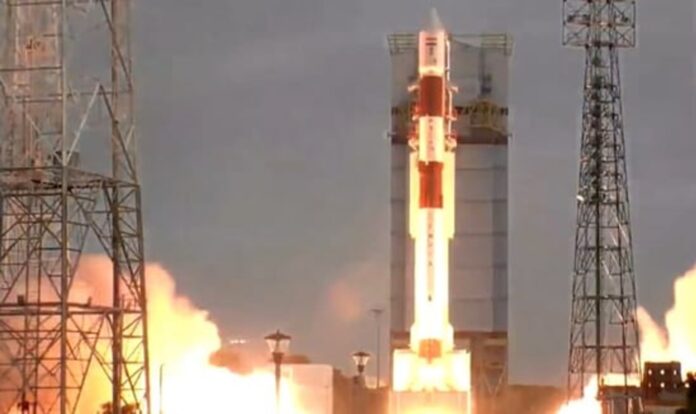In another remarkable feat of space technology, the Indian Space Research Organisation (ISRO) has once again demonstrated its prowess by successfully launching the PSLV-C56 rocket from the Satish Dhawan Space Centre in Sriharikota, Andhra Pradesh. The mission, designated as the 58th flight of PSLV and 17th in core alone configuration, achieved a momentous milestone as it deployed all seven Singaporean satellites into the near-equatorial orbit (NEO). The PSLV-C56 rocket, renowned for its reliability, lifted off with precision, and approximately 23 minutes after launch, it skillfully separated from the payloads.
Travelling a distance of 535 km, the rocket meticulously positioned each satellite into their intended orbits, making this mission a resounding success. Among the satellites placed into the NEO, the DS-SAR satellite deserves special mention. Developed through a collaborative effort with the Government of Singapore’s Defence Science and Technology Agency and ST Engineering, the DS-SAR satellite holds significant promise for Singapore. It is specifically designed to cater to the satellite imagery requirements of various government agencies, enhancing Singapore’s capabilities in space-based surveillance and intelligence gathering.
In addition to the DS-SAR, the PSLV-C56 also accommodated six co-passenger customer satellites, showcasing ISRO’s commitment to fostering international cooperation in the space arena. These include VELOX-AM, a technology demonstration microsatellite weighing 23 kg; ARCADE, an experimental satellite aimed at studying atmospheric coupling and dynamics; SCOOB-II, a 3U nanosatellite carrying a technology demonstrator payload; NuLIoN by NuSpace, an advanced 3U nanosatellite facilitating seamless IoT connectivity in both urban and remote areas; Galassia-2, a 3U nanosatellite that will be orbiting in low earth orbit; and ORB-12 STRIDER, a satellite developed through international collaboration.
The successful launch of the PSLV-C56 reinforces ISRO’s position as a leading player in the global space industry. Its ability to deliver payloads with precision and efficiency has garnered international acclaim, attracting partnerships and satellite launches from various nations. As the DS-SAR and other co-passenger satellites become operational, they are expected to make significant contributions to various sectors, including communication, surveillance, and technology demonstration.
The advancements in satellite technology achieved through missions like PSLV-C56 pave the way for a more interconnected and data-driven world. ISRO’s ongoing efforts in space exploration have not only propelled India to the forefront of space research but have also strengthened ties with other countries, fostering collaboration and knowledge exchange. With the 58th PSLV flight marking yet another successful endeavor, ISRO continues to inspire the global scientific community and nurture a brighter future for space exploration.


